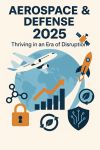The Rise of Proton Exchange Membrane Fuel Cells — And the Growing Need for Control System Experts in China
As nations intensify efforts to combat climate change, the global spotlight is increasingly focused on hydrogen as a clean energy carrier — and Proton Exchange Membrane (PEM) fuel cells are emerging as a leading technology in this transition. With high energy efficiency, scalability, and zero emissions at the point of use, PEM fuel cells are seeing growing adoption across transportation, industrial, and energy sectors.
In particular, China is becoming a major hub for PEM fuel cell development, creating an urgent and rapidly expanding demand for specialized talent — especially Fuel Cell Control Experts.
What Are PEM Fuel Cells and Why Do They Matter?
Proton Exchange Membrane (also called Polymer Electrolyte Membrane) fuel cells generate electricity through an electrochemical reaction between hydrogen and oxygen, producing only water and heat as byproducts. Unlike combustion engines, PEM fuel cells operate silently, emit no pollutants, and offer a fast response to load changes, making them ideal for mobile and distributed energy applications.
They are especially suitable for:
Fuel cell vehicles (FCVs) — buses, trucks, and cars
Backup and off-grid power systems
Material handling equipment like forklifts
Portable and military power solutions
Why the Sector Is Booming
1. China’s Hydrogen Push
China has made hydrogen a strategic priority in its national energy strategy. Cities and provinces are rolling out ambitious hydrogen roadmaps, aiming to build thousands of hydrogen refueling stations and put tens of thousands of FCVs on the road by 2030.
This aligns with China’s dual goals of reducing urban air pollution and achieving carbon neutrality by 2060.
2. Government Incentives and Industrial Policy
Generous government subsidies, infrastructure investment, and joint ventures between domestic firms and global fuel cell companies have accelerated technology deployment and commercial adoption.
3. Decentralized Energy Systems
PEM fuel cells are being adopted beyond transportation, including in telecom towers, residential buildings, and emergency backup systems — all of which benefit from clean, quiet, and reliable energy.
The Critical Need for Fuel Cell Control Expertise
As PEM fuel cell systems become more widespread and complex, their performance, safety, and reliability hinge on advanced control systems.
Fuel Cell Control Experts are vital in the following ways:
System Optimization: They design and fine-tune the balance of plant (BoP) — including air supply, cooling, and hydrogen management.
Safety Management: They implement fault detection, thermal control, and pressure regulation to prevent system failure.
Software & Embedded Systems: Experts develop real-time control algorithms and integrate software with the fuel cell stack, vehicle systems, or grid interfaces.
Diagnostics & Prognostics: Predictive maintenance and degradation modeling are crucial for system longevity and commercial viability.
As systems scale from lab prototypes to mass-market deployment, the sophistication of control architecture becomes a make-or-break factor.
Talent Gap and Industry Implications
Despite the urgency, there is a global shortage of professionals with deep experience in PEM fuel cell control — particularly in China, where demand has outpaced local training and expertise development. Many companies are:
Expanding internal training programs
Partnering with universities and research institutes
Recruiting internationally to fill knowledge gaps
The pressure to commercialize fuel cell vehicles and infrastructure within tight policy timelines is intensifying the need for skilled engineers, especially those with cross-disciplinary knowledge in electrochemistry, control systems, embedded hardware, and software integration.
What’s Next?
As the energy transition accelerates, PEM fuel cell control experts are becoming indispensable across industries. Their work not only ensures system safety and efficiency but also enables scalability — which is critical for widespread adoption.
In the coming years, we can expect:
Increased international collaboration to address talent shortages
Growing investment in education and upskilling programs
More career opportunities in hydrogen hubs like China, Germany, Japan, and the U.S.
Proton Exchange Membrane fuel cells are no longer emerging tech — they’re becoming a core component of the clean energy landscape. As China and other major economies push forward with hydrogen infrastructure and fuel cell vehicle deployment, the demand for control system expertise will only intensify.
For engineers, researchers, and technologists, now is the time to engage. The future of clean energy will be shaped not only by chemistry and hardware — but by the software and control systems that make PEM fuel cells run safely, efficiently, and at scale.
If you are a specialist in this field and looking to make a meaningful impact in the next phase of clean energy innovation, we invite you to explore current opportunities. Submit your CV for active roles in this sector at:https://www.icautochina.com/job-search/22-fuel-cell-sealing-expert-contract-job-china/senior-engineering-expat-contracts/baoding/job
R&D ENGINEERS WITH DOCTORAL DEGREES IN CHINA: DRIVING INNOVATION AND TECHNOLOGICAL LEADERSHIP
China is accelerating its emergence as a global technological powerhouse, largely driven by an ambitious surge in research and development (R&D) capacity. At the heart of this transformation is a rapidly expanding class of STEM PhD holders, many of whom are shaping the future of automotive innovation and other advanced industries.
While China’s progress inspires admiration, it also raises questions among international observers — particularly in the United States — about the implications for global technological leadership, economic security, and national competitiveness.
A Surge in STEM PhDs: Quantity with Rising Quality
According to a 2021 report by Georgetown University’s Center for Security and Emerging Technology (CSET), China is expected to produce over 77,000 STEM PhDs annually by 2025, nearly twice the number of the U.S., and more than triple when excluding U.S. international students. This rapid expansion is the product of deliberate national strategy: since the early 2000s, China has opened over 1,300 new PhD programs and nearly doubled its higher education budget between 2012 and 2021.
Although skeptics argue that "more" does not always mean "better," the quality of Chinese doctoral education is also on the rise, particularly within its top-tier “Double First Class” universities. These institutions now produce nearly half of the country’s PhDs and are key to China’s global research contributions, particularly in AI, materials science, and engineering.
The Automotive Sector: A National Priority
R&D engineers with doctoral degrees are in exceptionally high demand in China’s automotive sector, which is undergoing a massive transformation fueled by government policy and market pressure. Areas of urgent recruitment include:
Autonomous Driving & AI Models
Electric Drive & Battery Management Systems
Intelligent Cockpits & Infotainment
Crash Analysis, EE System Engineering
Hydrogen Fuel Cell and Advanced Lighting
These engineers are not just developing technologies — they are leading them. PhD holders often serve as principal investigators, system architects, and innovation leaders, translating cutting-edge science into commercial products for OEMs and Tier 1 suppliers.
Exceptional Incentives and Global Opportunities
To attract global experts, Chinese companies and research parks are offering one- to five-year contracts, full relocation support, and salaries well above global averages, particularly for those with OEM or Tier 1 experience. The financial packages often include housing, healthcare, education for children, and bonuses tied to project success.
For foreign STEM PhDs, China represents both opportunity and challenge — a dynamic environment where R&D teams are large, well-funded, and increasingly competitive. Many roles are open to international candidates, especially in innovation hubs like Shanghai, Shenzhen, Guangzhou, and Wuhan.
A Talent Race with Global Consequences
As Yojana Sharma noted in University World News, the U.S. is now reassessing its position in the global "war for talent." Historically, U.S. dominance in research has relied on its ability to attract and retain foreign PhD talent, especially from Asia. But with rising concerns over immigration policy, national security, and foreign student restrictions, that edge may be eroding.
Meanwhile, China’s self-sufficiency strategy continues to bear fruit. The majority of Chinese STEM PhDs are domestic nationals trained at home, many of whom now choose to stay and work in China rather than seek opportunities abroad. With the number of top-tier Chinese PhDs rising — especially in engineering and AI — the foundation for long-term innovation leadership is being laid.
Conclusion: Talent Is the True Technology
While the U.S.–China rivalry in technology often centers on hardware or patents, the real race is for human capital — the minds capable of building the future. PhD-level R&D engineers are the vanguard of this movement. In China, they are empowered with resources, respected as thought leaders, and tasked with executing one of the most ambitious national innovation agendas in modern history.
For the world, this signals a shift. For R&D professionals, it presents a unique window of opportunity. If you are a doctorate-level engineer with expertise in cutting-edge automotive technologies and are ready to take your career to the next level in China, we invite you to apply by submitting your CV to our current job offerings: https://www.icautochina.com/job-search/19-doctoral-contract-jobs-china-250k-350k-pa/technical-rd-consultant/shanghai/job
Swedish electric aircraft startup Heart Aerospace is relocating its headquarters from Gothenburg to Los Angeles in a move it says will accelerate the development of its hybrid-electric passenger plane.
The transition will result in the layoff of all 75 employees in Sweden, according to company spokesperson Christina Zander. "Recruitment in the US is ongoing," she told TNW.
Founded in 2018, Heart Aerospace is developing the ES-30, a 30-seat hybrid-electric regional airliner. The first prototype, dubbed X1, is expected to take its maiden flight later this year.
Tobias Bengtsdahl, a partner at Stockholm-based VC firm Antler, said the decision underscores deeper issues in Europe’s tech ecosystem. “Europe’s over-regulation and lack of market appetite are actively driving innovation away,” he said. “Moves like this only reinforce the perception that the US is the better environment for building cutting-edge companies.”
To date, Heart Aerospace has raised nearly $200 million from investors including Breakthrough Energy Ventures, founded by Bill Gates, and the Swedish government. CEO and founder Anders Forslund said the relocation would allow the company to better concentrate its resources.
“Our customers, partners, and investors are increasingly based in the US,” Forslund said. “By consolidating operations in Los Angeles, we can move faster, collaborate more effectively, and strengthen our position for the future.”
The shift had been foreshadowed by several recent developments. In May 2024, Heart opened a research and development hub in Los Angeles. It previously conducted its first test flight in the US and secured a $4.1 million contract from the Federal Aviation Administration (FAA).
Heart has already booked 250 firm orders and 191 letters of intent for the ES-30. US airlines United and Mesa are among the major customers, while Scandinavian Airlines (SAS), Sweden’s Braathens Regional Airlines, and Icelandair have signed letters of intent covering 96 aircraft in total.
Despite the move, Zander emphasized that Heart's European partnerships remain intact. “Our Scandinavian investors and suppliers are still key collaborators,” she said. “Relocating to the US is a strategic step for prototype development, but Europe remains an essential part of our broader ecosystem.”







